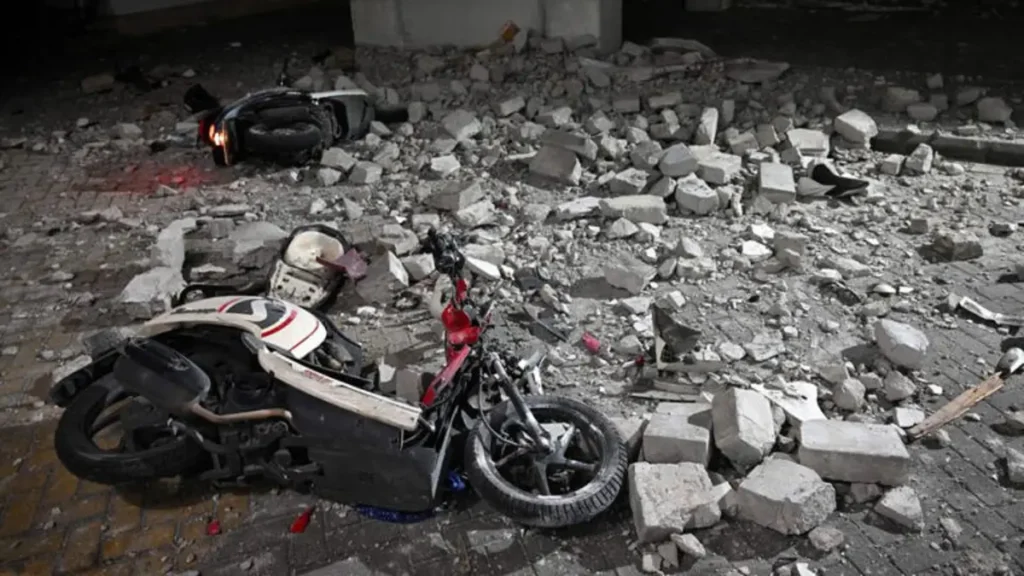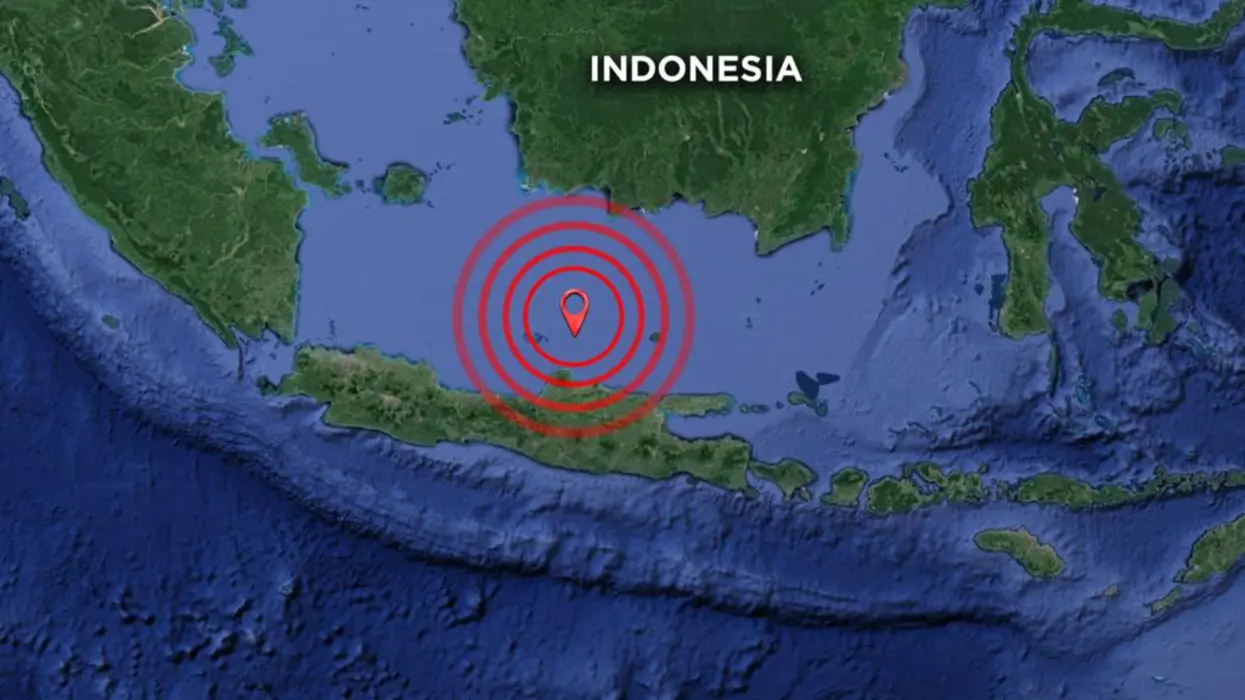Jakarta, indonesia earthquake today – Residents of Indonesia’s Java Island were jolted awake as a magnitude 6.5 earthquake struck off the coast, sending shockwaves through the region and prompting immediate safety measures.
Table of Contents
Immediate Response and Safety Measures
In Jakarta Earthquake, the capital city, felt strong tremors. People evacuated high-rise buildings systematically। Local authorities quickly assessed the situation to protect residents and tourists.
Details of the indonesia earthquake today
The United States Geological Survey reported the Earthquake at a magnitude of 6.1, occurring at a depth of 10 kilometers (6 miles), with the epicenter located approximately 150 kilometers from Garut, West Java. The discrepancy in magnitude reports is not uncommon in the immediate aftermath of such events, as data is refined and updated.
Indonesia’s Geological Challenge
Indonesia sits on the infamous Pacific “Ring of Fire,” a hotbed for seismic activity due to the collision and movement of tectonic plates. This region’s history is scarred by significant seismic events, including the harrowing 2004 tsunami that devastated Aceh province.
Moving Forward: Earthquake
As the nation comes to grips with the latest natural challenge, the spirit of resilience is palpable. Indonesia’s disaster response agencies are on high alert, monitoring aftershocks and coordinating with international aid organizations to provide support where needed.
some safety tips during an earthquake
- Drop, Cover, and Hold On:
- Drop down onto your hands and knees before the earthquake knocks you down.
- Cover your head and neck (and your entire body if possible) underneath a sturdy table or desk.
- Hold On to your shelter until the shaking stops. Be prepared to move with your shelter if the shaking shifts it around.
- Stay Indoors:
- If You Are in Bed:
- Stay there and protect your head with a pillow. Avoid getting up as broken glass on the floor can cause injuries.
- Avoid Doorways:
- Do not stand in a doorway. In modern houses, doorways are no stronger than any other part of the house and do not protect you from falling or flying objects.
- If You Are Outside:
- Move away from buildings, power lines, and trees. Drop, then crawl towards open space if you can.
- If You Are Driving:
- Stop and stay in your vehicle. Avoid stopping under overpasses, bridges, power lines, or signs.
- After the Shaking Stops:
Have an emergency kit ready, know how to shut off your utilities, and have a plan with your family for communication and meeting up after the disaster.

What should I include in my emergency kit?
An emergency kit is essential for ensuring you have the necessary items to survive and stay safe during and after an emergency. Here’s a list of items you should consider including in your emergency kit:
- Water: One gallon per person per day for at least three days, for drinking and sanitation.
- Food: A several-day supply of non-perishable food items.
- Battery-powered or hand crank radio: To stay informed about news and emergency broadcasts.
- Flashlight: With extra batteries to navigate in the dark.
- First aid kit: Stocked with bandages, antiseptics, and other medical supplies.
- Whistle: To signal for help if needed.
- Dust mask: To help filter contaminated air.
- Plastic sheeting and duct tape: To create a makeshift shelter.
- Moist towelettes, garbage bags, and plastic ties: For personal sanitation.
- Wrench or pliers: To turn off utilities if necessary.
- Manual can opener: For opening canned food without power.
- Local maps: To navigate if GPS is not available.
- Cell phone with chargers: Including a backup battery or solar charger.
Additionally, based on your individual needs, you might want to include:
- Prescription medications: And any over-the-counter drugs you regularly use.
- Glasses or contact lens solution: If you wear them.
- Infant supplies: Such as formula, bottles, diapers, and wipes if you have a baby.
- Pet supplies: Including food and extra water if you have pets.
- Cash or traveler’s checks: In case ATMs are not working.
- Important family documents: Such as copies of insurance policies and identification, stored electronically or in a waterproof container.
- Sleeping bag or warm blanket: For each person, especially if you live in a colder climate.
- Complete change of clothing: Including sturdy shoes.
- Fire extinguisher: To put out small fires.
- Matches in a waterproof container: For starting fires in a safe environment.
- Personal hygiene items: Such as feminine supplies and toiletries.
- Mess kits: Paper cups, plates, paper towels, and plastic utensils.
- Books, games, puzzles: Or other activities to keep children and adults occupied.
Remember to maintain your kit regularly by replacing expired items and re-evaluating your family’s needs annually. Stay prepared and safe!



Pingback: Over 70 Pakistani Stay in Hotel: Security Alert